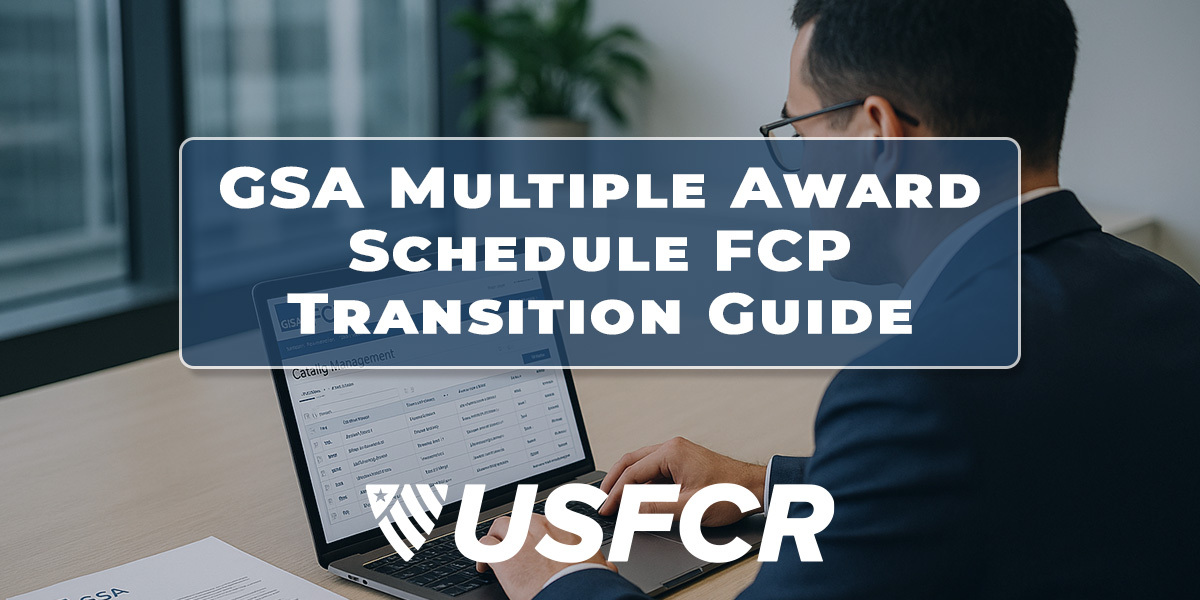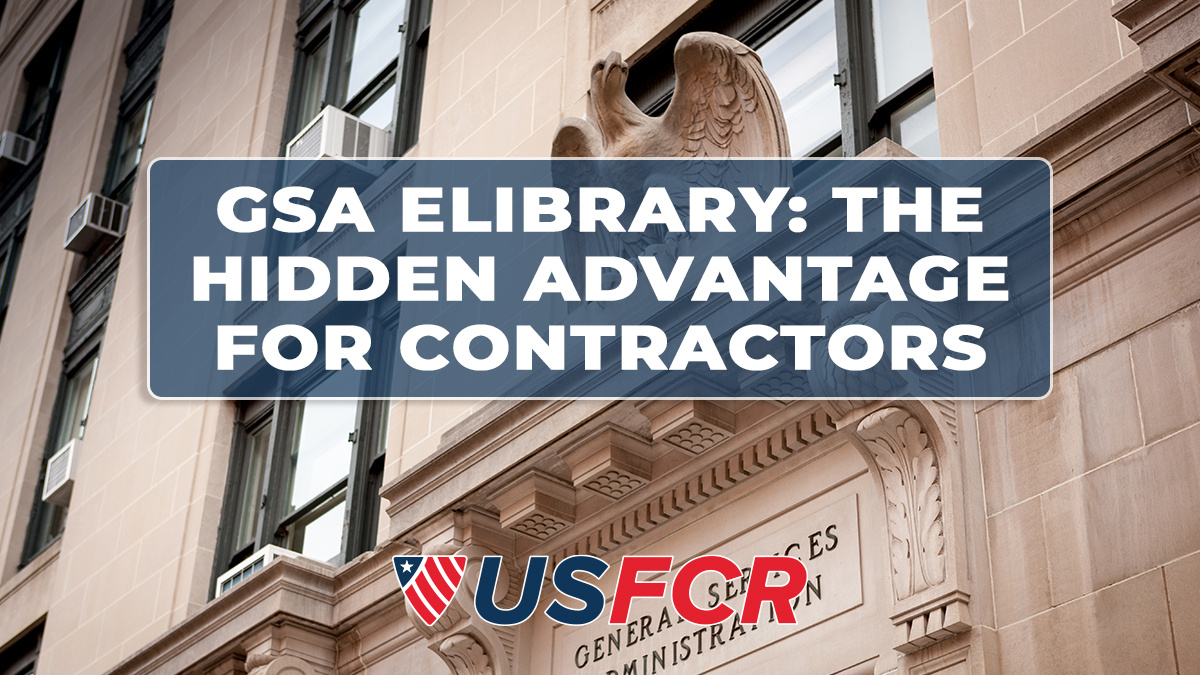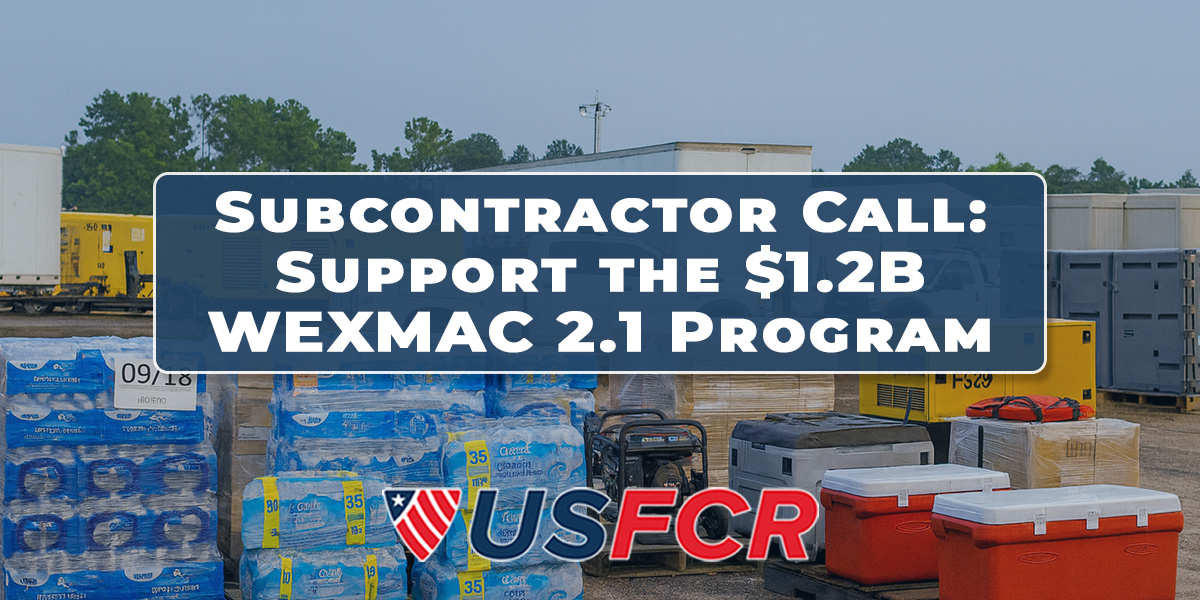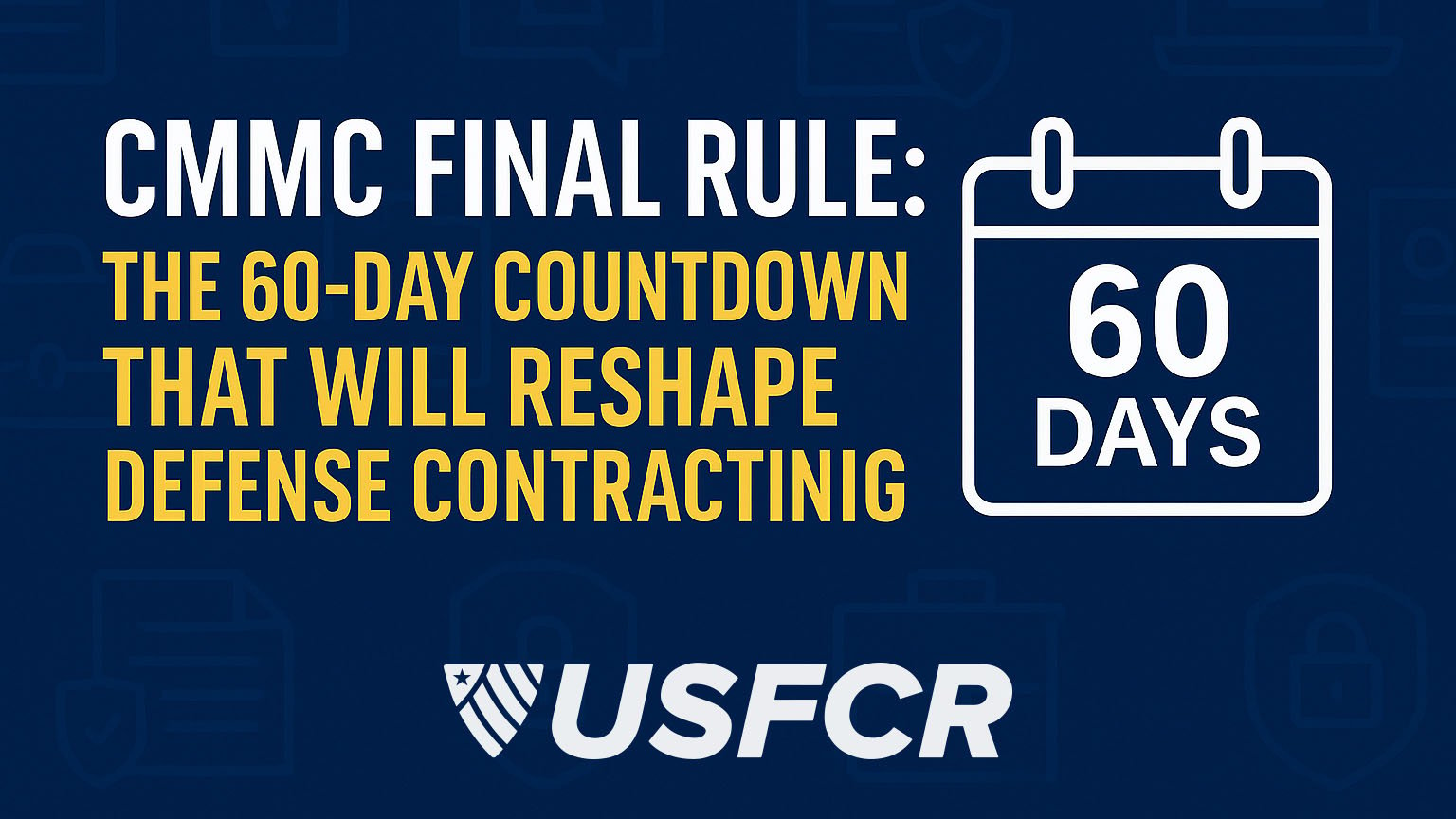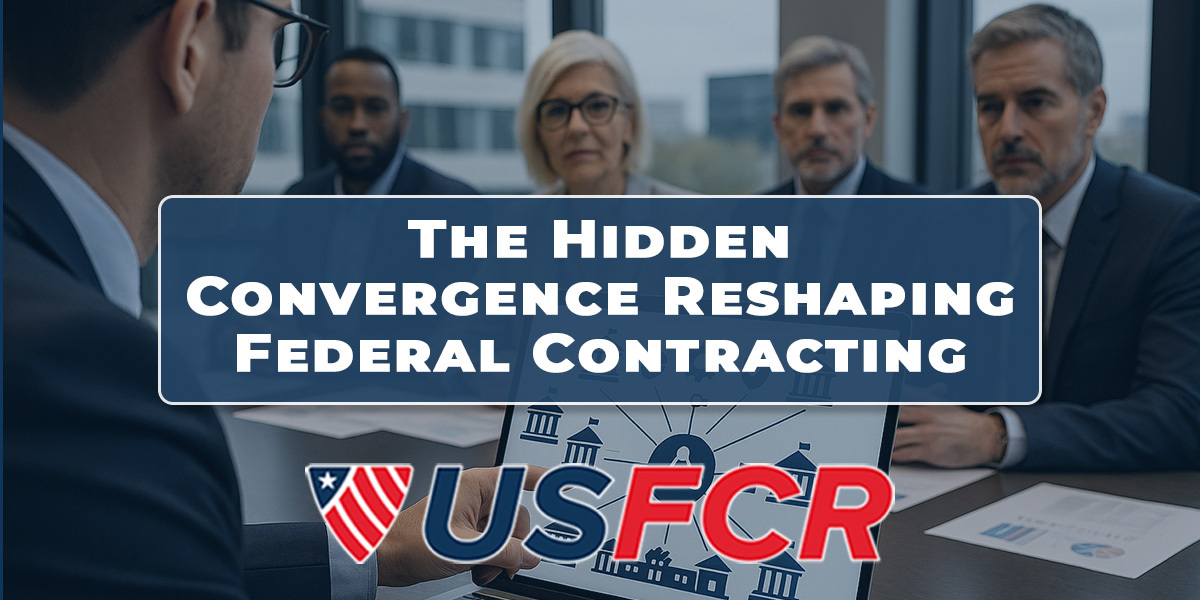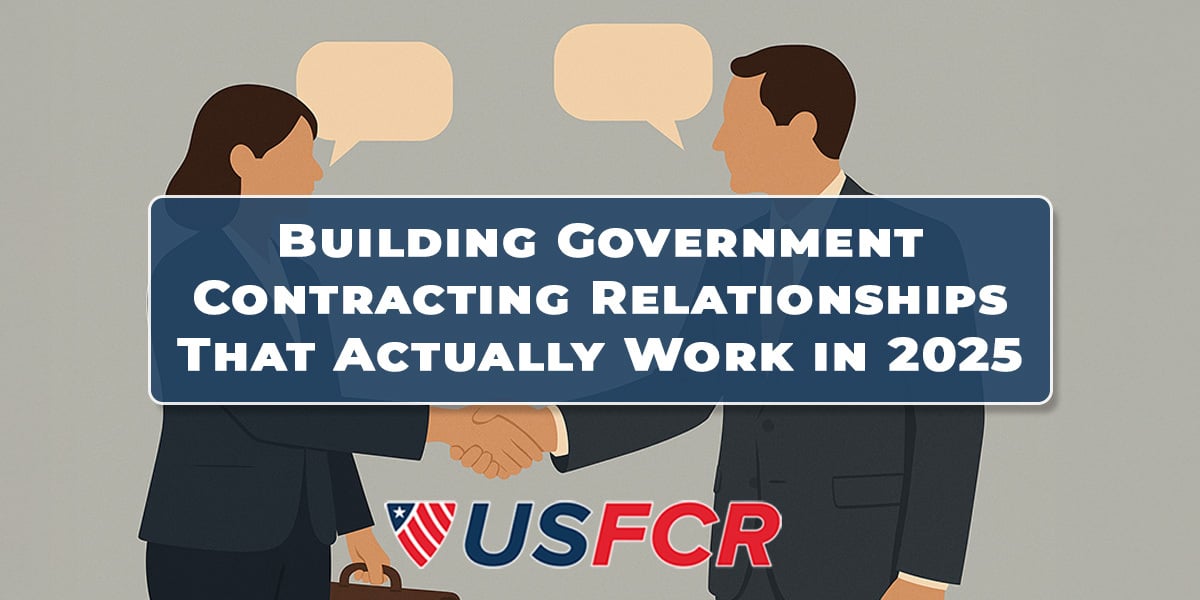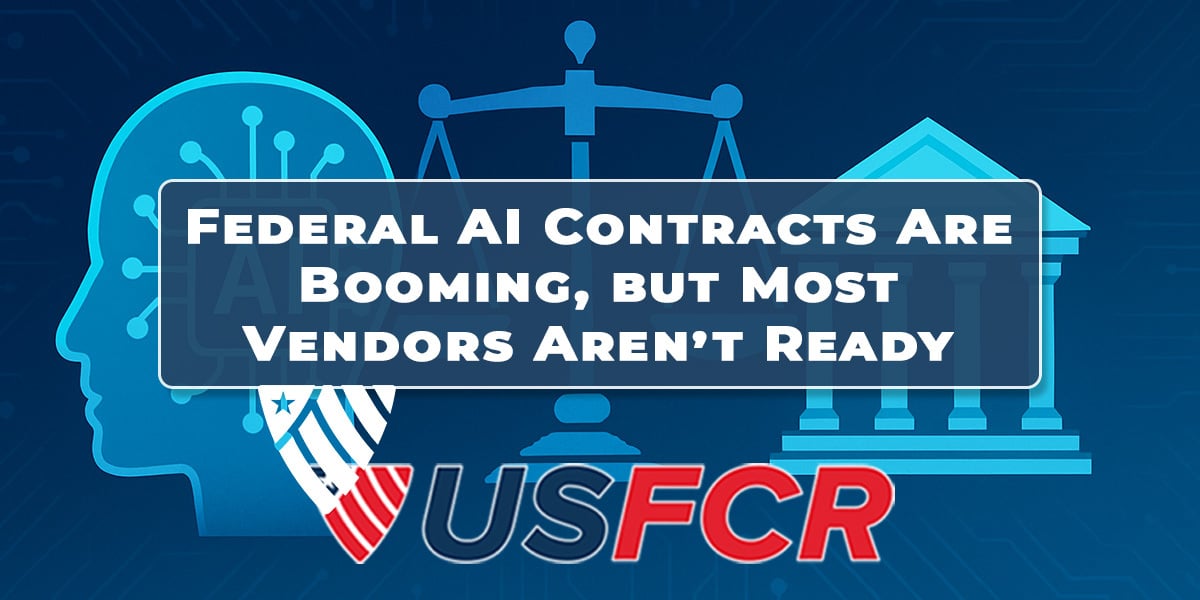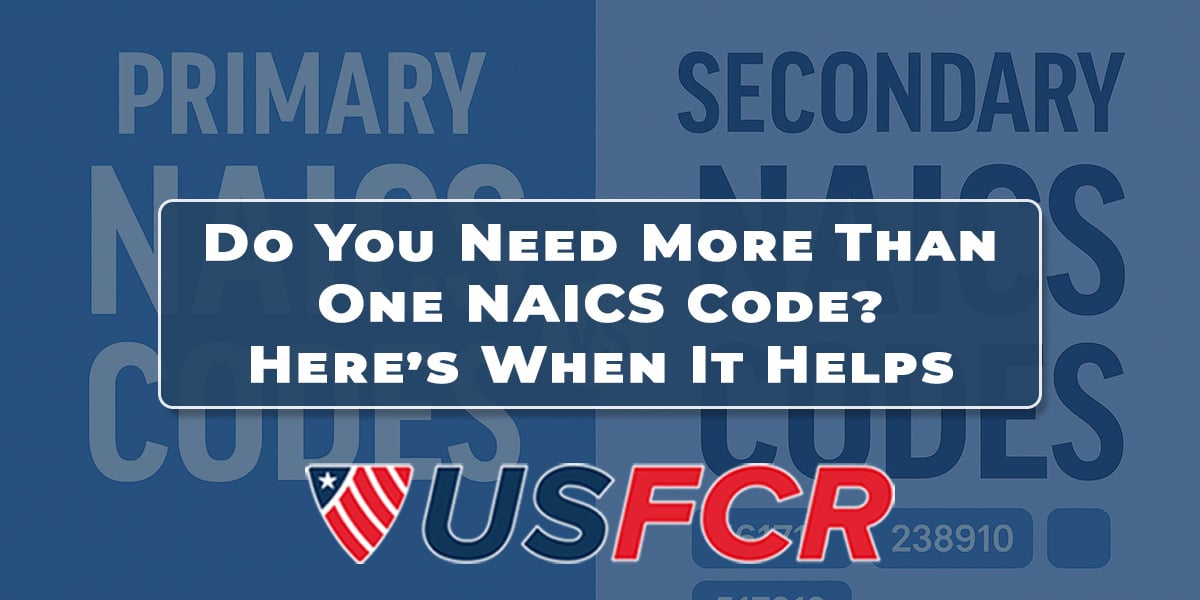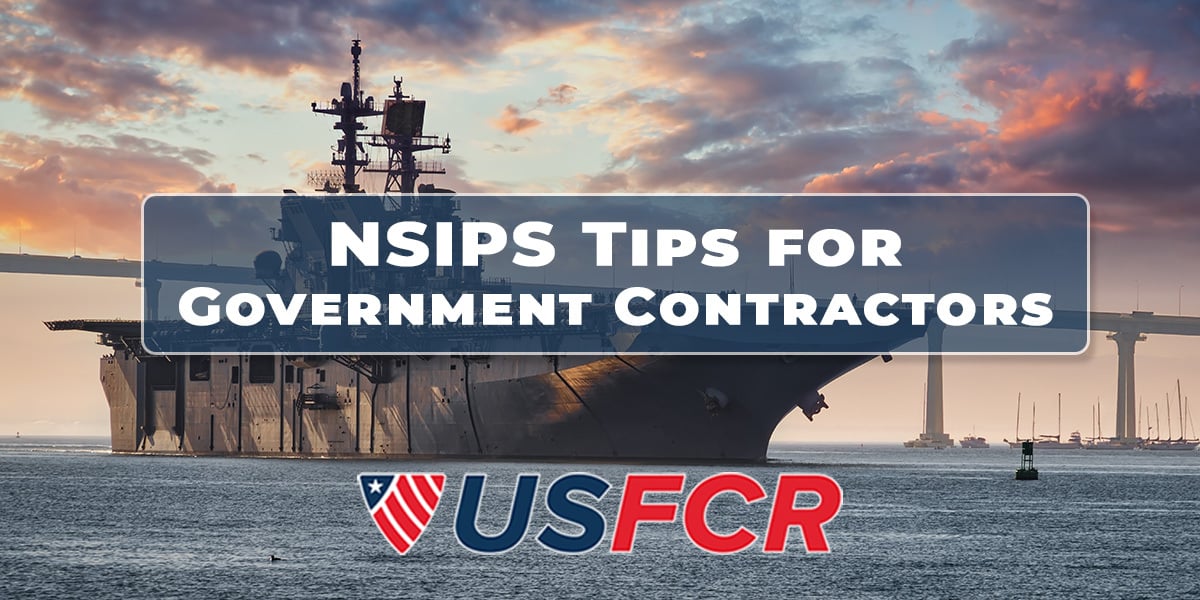If your business recently received a GSA Multiple Award Schedule (MAS) contract award, this announcement directly impacts your next steps. GSA has issued critical guidance that could save you significant time and prevent duplicative work during your catalog setup process.
USFCR
Recent Posts
Important Update for New GSA MAS Award Recipients
Sep 30, 2025 11:00:00 AM / by USFCR posted in General Services Administration (GSA), News
GSA eLibrary: Your Competitive Intelligence Goldmine
Sep 29, 2025 9:00:00 AM / by USFCR posted in General Services Administration (GSA), News
WEXMAC 2.1: Subcontractor Opportunities Now Available
Sep 16, 2025 3:30:00 PM / by USFCR posted in Success Stories, News
The West Expeditionary Mission Assurance Contract (WEXMAC 2.1) is one of the largest worldwide contracting opportunities in recent years. This multi-billion-dollar IDIQ covers logistics, construction, medical, communications, and security services and provides full-spectrum expeditionary mission support.
The Department of War has issued the final DFARS rule implementing the Cybersecurity Maturity Model Certification (CMMC). It was published on September 10, 2025, and will take effect on November 10, 2025. On that date, contracting officers can begin including new DFARS clauses in solicitations and contracts, formally tying cybersecurity compliance to eligibility for defense awards.
The Shift Agencies Won’t Say Out Loud
Right now, federal agencies are quietly rethinking how they deliver mission-critical services. It’s not just about buying better software or upgrading IT systems. The real shift is toward systematizing and industrializing entire service functions that have historically been managed in-house or awarded through one-off contracts.
Manufacturing-related federal contracts are on the rise following the White House’s recent Made in America Agenda announcement. This presidential action outlines new steps to boost domestic production and expand U.S.-based supply chains, creating fresh opportunities for manufacturers across multiple industries.
Building Government Contracting Relationships That Actually Work in 2025
Aug 12, 2025 9:00:00 AM / by USFCR posted in USFCR Academy
You can’t charm your way to a government contract in 2025, and that’s a good thing. Awards aren’t decided over coffee or based on who knows whom. Instead, they’re determined by merit, skills, and the ability to meet the requirements better than anyone else. That levels the playing field. Now, if you can prove to the right people that you’re reliable, compliant, and ready to deliver, you can compete head-to-head with larger, more established vendors.
In 2025, personal rapport with a contracting officer isn’t the ticket to a win. KOs are bound by strict regulations, protests are at an all-time high, and procurement integrity rules are enforced aggressively. In fact, the appearance of favoritism can remove you from a competition.
AI Contracts and Federal Procurement: The $20 Billion Wave Contractors Are Missing
Aug 8, 2025 1:00:00 PM / by USFCR posted in Federal Spending, AI
Federal agencies are set to spend over $3.3 billion on artificial intelligence in FY 2025, according to NITRD reporting. But most contractors still struggle to position themselves for this opportunity. It's not just about having a tool that works. Agencies want vendors who can meet mission goals with secure, ready-to-deploy solutions.
Primary vs Secondary NAICS Codes: What Actually Matters in SAM
Aug 5, 2025 12:00:00 AM / by USFCR posted in USFCR Academy, NAICS
What Your Primary NAICS Code Controls
Let’s start with the basics. Your primary NAICS code is the one that SAM officially ties to your registration. It defines your core business activity, determines size standards, and can impact set-aside eligibility. If you’re an SDVOSB, 8(a), WOSB, or HUBZone, the primary code must align with the opportunity you're targeting.
NSIPS Tips for Government Contractors
Aug 1, 2025 10:30:00 AM / by USFCR posted in USFCR Academy
Why NSIPS Matters More Than You Think
NSIPS is the Navy’s official personnel database. It tracks everything from training records to service history to access permissions. If your contract supports the Navy, this system can affect how your staff get onboarded, cleared, or even paid.
NSIPS stands for Navy Standard Integrated Personnel System. It’s a centralized, web-based platform used to manage the personnel records, training compliance, and administrative actions of active and reserve sailors. While it was built for military use, many contractors are now required to interface with it, especially in HR, IT, or administrative roles that support commands like NAVSEA.
Not every contractor needs access, but when NSIPS is in scope, missing steps can cause serious delays.
